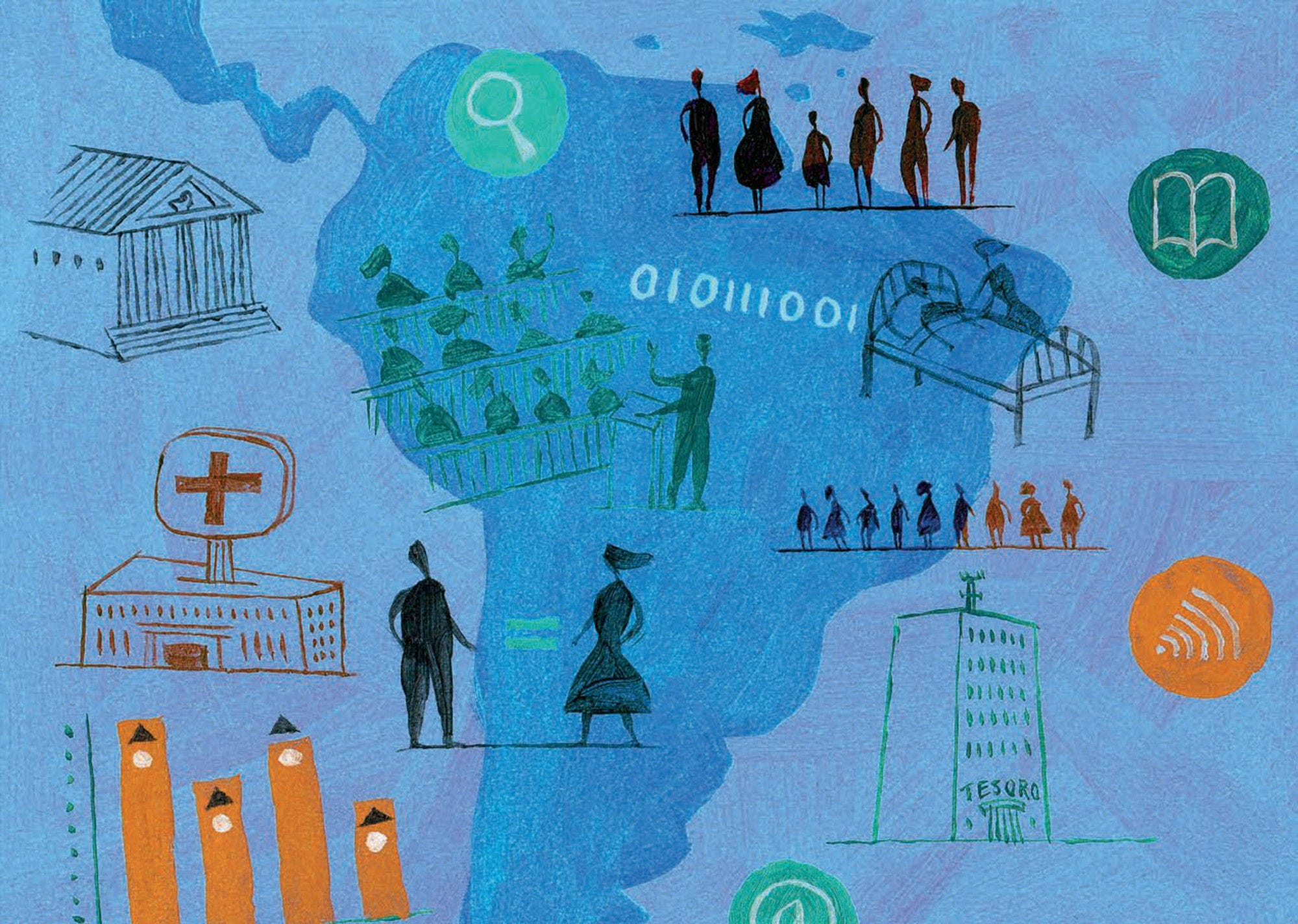The idea that everyone is equal before the law is a cornerstone of democratic systems. Starting in the 1980s the LAC region experienced a long and deep wave of democratisation. Since then consolidating and strengthening democratic values has been one of the main challenges for the region, with a varying degree of success across countries. The rule of law refers to the idea that the same rules, procedures and principles apply to all individuals and organisations, including government itself. In practice, the concept is enshrined in laws, codes and procedures guaranteeing fair treatment by institutions and equal access to justice. In turn, its application relies on the expected predictability, reliability and accountability of the legal system. In itself, the rule of law is a multidimensional concept encompassing diverse elements such as fundamental rights, order and security, absence of corruption, and open government. Most of these elements are also recognised as key components of good governance crucial for maintaining peace and order, achieving economic development, and ensuring the effective provision of public goods and services.
The World Justice Project (WJP) is one of the most systematic approaches to conceptualising and measuring the rule of law worldwide. According to its methodology, the systems upholding the rule of law comprise four universal principles: 1) the government as well as private actors are accountable under the law; 2) the laws are clear, publicised, stable and just; are applied evenly; and protect fundamental rights, including the security of persons, contract and property rights, and certain core human rights; 3) the processes by which the laws are enacted, administered, and enforced are accessible, fair, and efficient; 4) justice is delivered timely by competent, ethical, and independent representatives and neutrals who are of accessible, have adequate resources, and reflect the makeup of the communities they serve”(WJP, 2019). The WJP assesses the rule of law through eight factors, two of which are presented here: constraints on government powers and protection of fundamental rights. The factor scores range between 0 (lowest) to 1(highest).
The factor measuring constraints on government powers captures “the extent to which those who govern are bound by law. It comprises the means, both constitutional and institutional, by which the powers of the government and its officials and agents are limited and held accountable under the law. It also includes non-governmental checks on the government’s power, such as a free and independent press.” (WJP 2019). The LAC average of this factor is 0.52 compared to 0.76 in OECD countries. Costa Rica (0.78), Uruguay (0.74) and Chile (0.72) have the highest values while Bolivia (0.36), Nicaragua (0.27) and Venezuela (0.18) reported the lowest. Between 2015 and 2019, the score of this component remained stable in LAC; however, there is some variation across countries; the highest increase in this component occurred in Argentina (0.14 points) which could be explained by several aspects, such as a law extending benefits to whistle blowers and overall higher perception of institutional independence across branches of powers. In turn, the most important deterioration occurred in Nicaragua (0.07).
The measure for the protection of fundamental rights includes information on effective law enforcement and due process, as well as the adherence to and respect of a range of basic human and labour rights established under international law. Like for the previous factor, the average is lower for LAC (0.57) than for OECD countries (0.76). LAC countries with the highest scores are Costa Rica (0.77), Uruguay (0.76) and Barbados (0.74) while the lowest are reported for Honduras (0.40), Nicaragua (0.39) and Venezuela (0.33). This factor decreased slightly in LAC from 0.59 in 2015 to 0.57 in 2019. The only two countries where improvements took place are Argentina (0.04) and Peru (0.02). In general terms, there is a strong positive correlation between the two factors (i.e. limited government powers and fundamental rights), pointing to the fact that countries that have established checks and balances on government power also guarantee basic rights.



